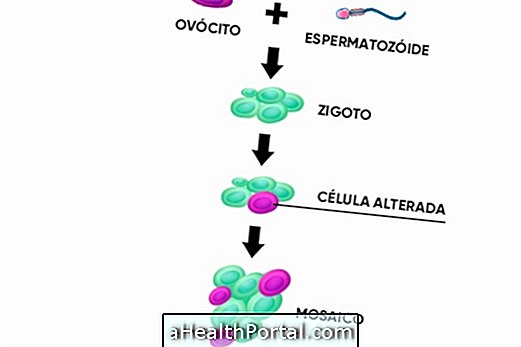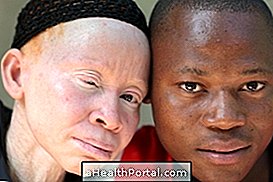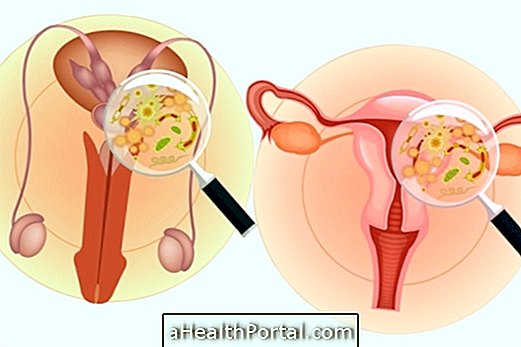Mosaicism is the name given to a type of genetic defect during the development of the embryo inside the maternal uterus, in which the person happens to have 2 distinct genetic materials, one that is formed by the union of the ovum with the spermatozoon of the parents, and another that arises due to a mutation of a cell in the course of the development of the embryo.
Thus, the person will develop a mixture of cells, with a percentage of normal cells and another percentage of cells with the mutation, as shown in the following figure:

Main features
Mosaicism happens when a mutation happens in an embryo cell, usually the loss or duplication of a chromosome, which causes the person to develop his body with 2 types of cells, and 2 types of genetic material. This mutation can be of 2 types:
- Germinal or Gonadal : affects the sperm or ovules, with alterations that can be transmitted to the children. Some examples of diseases caused by germ cell changes are Turner's syndrome, imperfect osteogenesis and Duchene's muscular dystrophy;
- Somatic: in which the cells of any other places of the body carry this mutation, being that the person can or not develop physical changes caused by him. Thus, the physical expression of the mutation depends on which and how many cells in the body are affected. Somatic mosaicism can be passed from parents to children, and some examples of diseases caused are Down syndrome and neurofibromatosis.
Mixed mosaicism, however, happens when the person is the bearer of the two types of mosaicism, both germinative and somatic.
Mosaicism is different from chimerism, for in this situation the genetic material of the embryo is duplicated by the fusion of two different embryos, which become one. Learn more about this situation in chimerism.
Consequences of mosaicism
Although many cases of mosaicism do not cause symptoms or any consequence to the health of the person, this situation can cause several complications and diseases to the person carrying, and some examples are:
- Predisposition to cancer;
- Changes in growth;
- Predisposition to spontaneous abortions;
- Changes in the pattern of skin pigmentation;
- Heterochromia ocular, in which the person can have one eye of each color;
- Down's syndrome;
- Turner syndrome;
- Osteogenesis imperfecta;
- Duchenne muscular dystrophy;
- McCune-Albright Syndromes;
- Pallister-Killian syndrome;
- Proteus syndrome.
In addition, it has been observed that mosaicism increases the predisposition to degenerative neurological diseases, such as Alzheimer's or Parkinson's, for example.






















